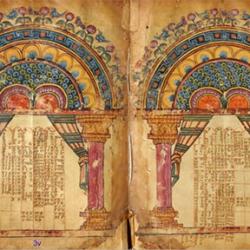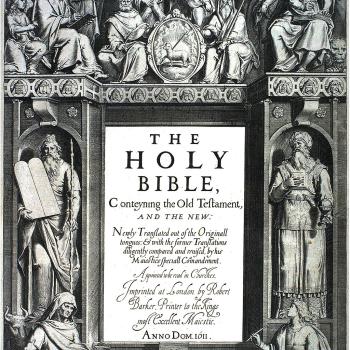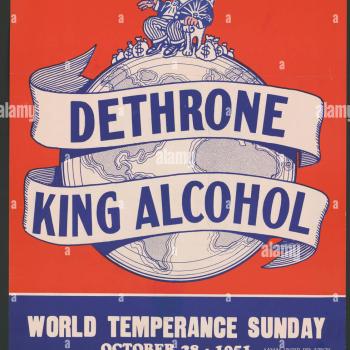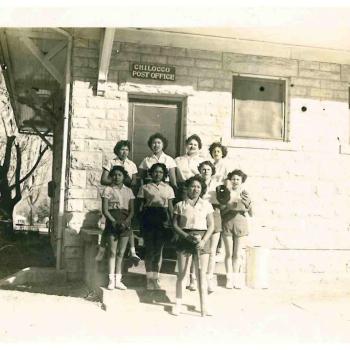A few days ago, Donald Trump thought it wise to remind Republican primary voters that he’s Presbyterian and Ben Carson belongs to some weird religion:
I’m Presbyterian. Can you believe it? Nobody believes I’m Presbyterian. I’m Presbyterian. I’m Presbyterian. I’m Presbyterian . . . Boy, that’s down the middle of the road folks, in all fairness. I mean, Seventh-day Adventist, I don’t know about. I just don’t know about.
I suppose this makes Donald Trump the country’s most famous Presbyterian. Are there any Americans who are famous for being Presbyterian? I looked up a list of prominent Presbyterians — lots of famous folks, from David Letterman and Shirley Temple to Bob Dole and Condoleeza Rice.
It’s hard for me to imagine that anyone at 100 Witherspoon St. in Louisville (the PCUSA national HQ) is a Donald Trump supporter. In fact, the Stated Clerk of the denomination recently condemned Trump’s incendiary rhetoric about immigration.
Still, Presbyterians need publicity, so I hope Trump keeps mentioning his affiliation (his own claimed congregation reports that he is not an active member). Perhaps he could get a hat that reads “Make Presbyterianism Grow Again” or some such. Maybe an all-Presbyterian church-growth reality show would help. He could be the first video spot in an “I’m Presbyterian” youtube effort.
It seemed strange for me that Trump would think that voters might favor a “middle of the road” Presbyterian. It reminded me of a story (I think from William Martin’s With God on Their Side) in which John Connelly attempted to woo evangelical leaders in 1980 by telling them that he hoped to get into heaven because he came from a long line of Methodists. Asked the same question, Ronald Reagan said he had no chance but for what Jesus Christ had done for him at Calvary. Needless to say, Trump seems over-confident from his good early polling among evangelicals. Surely there are more effective ways to court evangelicals than mentioning that one affiliates with a progressive Protestant denomination.
Nor does it make much sense to me that voters would have much of an issue with Carson’s Seventh-Day Adventist membership.
Now, half a century ago many evangelicals were very wary of Seventh-Day Adventism. In his 1955 Rise of the Cults, Walter Martin observed that among the cults, Seventh-day Adventism was “theologically the nearest to orthodoxy, and therefore the most difficult to refute.” While Martin conceded that Seventh-Day Adventists “affirm many Biblical doctrines,” he noted that they “just as vigorously deny others, such as the existence of hell and the eternal punishment of the lost.” (Rise of the Cults, p. 15). Other early countercult authors, such as Jan Karel Van Baalen, also included the Adventists on their expansive list of cults, heresies, and “isms,” as fundamentalists and then evangelicals labeled movements they considered unorthodox.
Such opinions were not confined to countercult authors. Protestants of most sorts had regarded Adventists with disdain since the Millerite excitement of the early 1840s. The influence of prophetess Ellen White on the post-Miller movement, the adoption of doctrines regarded as unorthodox by most other Protestants (such as the annihilation of the wicked, and the belief that post-mortal individuals remains unconscious until the resurrection), and distinctive dietary codes created additional theological and ecclesiastical difference between Adventists on the one hand and most other Protestant denominations. At the same time, Protestants of all stripes came to admire Adventist humanitarian (especially medical) work, and many evangelicals in particular admire the Adventist emphasis on purity and holiness. Shortly after the publication of The Rise of the Cults, Martin later reconsidered his categorization of Seventh-Day Adventism. All evangelical criticism of Seventh-Day Adventism did not cease, but over the ensuing decades there has been considerable rapprochement.
Perhaps it’s wise for Trump to try to persuade evangelical voters that Carson’s denomination is weird (my word, but Trump’s implication). Still, nominal Presbyterian or active Seventh-Day Adventist? In the early 1950s, Presbyterianism would have been a decided asset. It worked for Dwight Eisenhower. In 2015, I’m thinking that as the campaign picks up steam, the active Seventh-Day Adventist (or another of the other openly Christian GOP candidates) will prove more successful in winning evangelical votes.
















